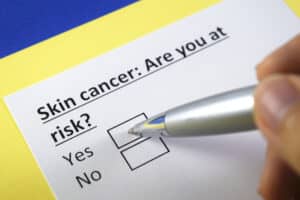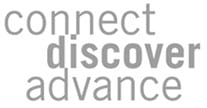Top 6 Skin Cancer Risk Factors
- Posted on: Aug 15 2024
 Experts estimate that 20% of Americans will be diagnosed with skin cancer in their lifetime.
Experts estimate that 20% of Americans will be diagnosed with skin cancer in their lifetime.
Skin cancer is a highly common form of cancer, but many people are unaware of the issues that can increase their risk. At the American Society for Mohs Surgery, an organization for skilled dermatologists with extensive Mohs training, we know that understanding these risk factors is crucial for early detection and prevention.
In this blog, you’ll learn about six of the most noteworthy contributors to skin cancer.
1. Sun Exposure
Prolonged exposure to ultraviolet (UV) radiation from the sun is a leading cause of skin cancer. Even occasional sunburns can significantly increase your risk.
2. Tanning Beds
Artificial UV light from tanning beds is just as harmful as natural sunlight. Frequent use of tanning beds increases the likelihood of developing skin cancer, particularly melanoma.
3. Skin Type
Individuals with fair skin, light hair, and light eyes are at a higher risk because their skin has less melanin, which provides some protection against UV radiation.
4. Family History
Have your parents or siblings had skin cancer? If so, your risk is higher. Genetics plays an important role in your susceptibility to the disease.
5. Previous Skin Cancer
If you’ve had skin cancer before, your risk of developing it again is higher. This makes regular check-ups crucial.
6. Age
As you get older, the likelihood of developing skin cancer increases, particularly for non-melanoma types. However, melanoma can affect people of all ages.
What to Do If You’re at Risk
If you identify with one or more of these risk factors, it’s important to take action. Regular skin checks at home and by a dermatologist can help you detect skin cancer early – when it’s most treatable. Additionally, you should protect your skin by wearing sunscreen, avoiding peak sun hours, and steering clear of tanning beds.
Schedule a Skin Cancer Consultation
Understanding your skin cancer risk factors is the first step toward effective prevention and treatment.
If you’re concerned about your risk, the next step is to meet with a professional. The American Society for Mohs Surgery offers a surgeon locator tool to help you find a qualified Mohs surgeon near you. You can also call (785) 783-2070 if you have more questions.
Posted in: Skin Cancer


